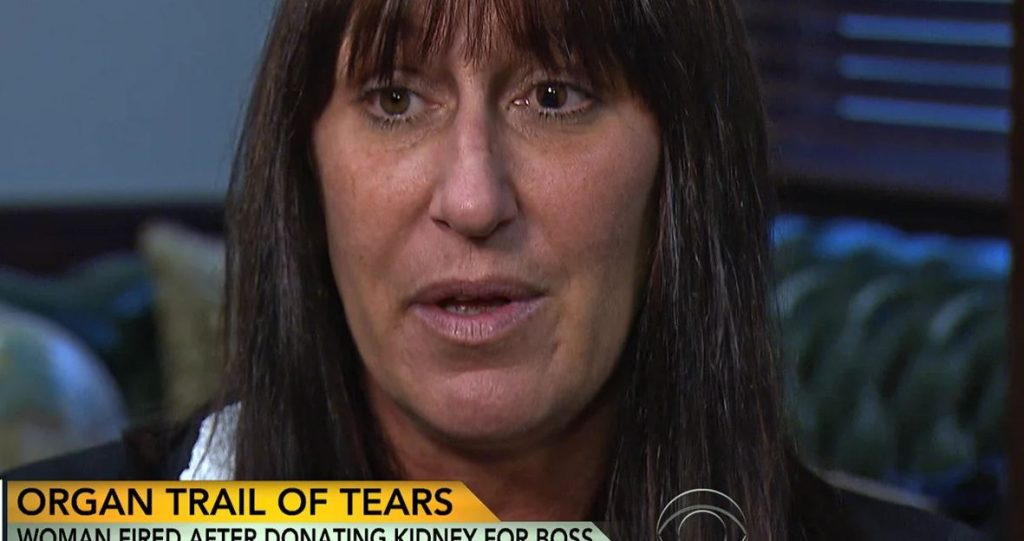In a remarkable act of selflessness, Debbie Stevens, a 47-year-old Long Island woman, donated a kidney to her boss, Jackie Brucia, to save her life. However, what followed was a series of events that left Stevens feeling betrayed and unjustly treated. Her story has sparked discussions about workplace ethics and the boundaries of professional relationships.
The Offer to Donate
Stevens and Brucia first met in 2009 when Stevens began working at Atlantic Automotive Group. In 2010, Stevens left the company but returned to Long Island in September to visit her daughter. During this visit, Brucia revealed her need for a kidney transplant and mentioned that her initial donor was unavailable. Stevens, known for her kind and generous nature, offered to donate her kidney. Brucia responded, “You never know, I may have to take you up on that one day.”

The Donation Process
Although Stevens wasn’t a perfect match for Brucia, she participated in a paired kidney exchange. Stevens donated her kidney to a recipient in Missouri, which allowed Brucia to receive a kidney from a donor in San Francisco. Stevens underwent surgery in August 2011 and returned to work four weeks later, despite experiencing complications and ongoing health issues.
Post-Donation Treatment
Upon her return, Stevens noticed a change in Brucia’s behavior. She was stripped of her office and overtime opportunities and demoted to a dealership 50 miles from her home. Stevens reported feeling mistreated and pressured to return to work before fully recovering. She described the treatment as “horrible, vicious, inhuman” and felt as though she had been used for her kidney.
Termination and Legal Action
In April 2012, Stevens was fired from her position at Atlantic Automotive Group. The company cited “performance deficiencies,” but Stevens claims she was given no written warning or performance improvement plan. She filed a discrimination lawsuit with the New York State Human Rights Commission, alleging that her termination was related to her recovery from surgery.
Public Response and Aftermath
The case garnered significant media attention, with many expressing support for Stevens and criticizing Brucia’s actions. Brucia’s husband denied the allegations, stating that Stevens’ claims were “far from the truth” and that she “didn’t fire anybody.” In 2013, Stevens’ legal team sent a letter to Atlantic Automotive Group. Following this, she was fired.

Conclusion
Debbie Stevens’ story is a poignant reminder of the complexities of workplace relationships and the ethical considerations surrounding organ donation. While her act of kindness was intended to save a life, the subsequent events have left her questioning the real integrity of those involved. Her experience underscores the importance of clear boundaries and mutual respect in professional settings. The case of Debbie Stevens also highlights broader issues regarding employee rights and workplace protections. Many people praised her selflessness, yet the lack of legal safeguards left her vulnerable to unfair treatment. Advocates argue that donors should be protected from job discrimination, and companies must create clear policies for medical leave and recovery. Stevens’ experience has sparked conversations about real ethics, empathy, and accountability in both personal and professional relationships.

















